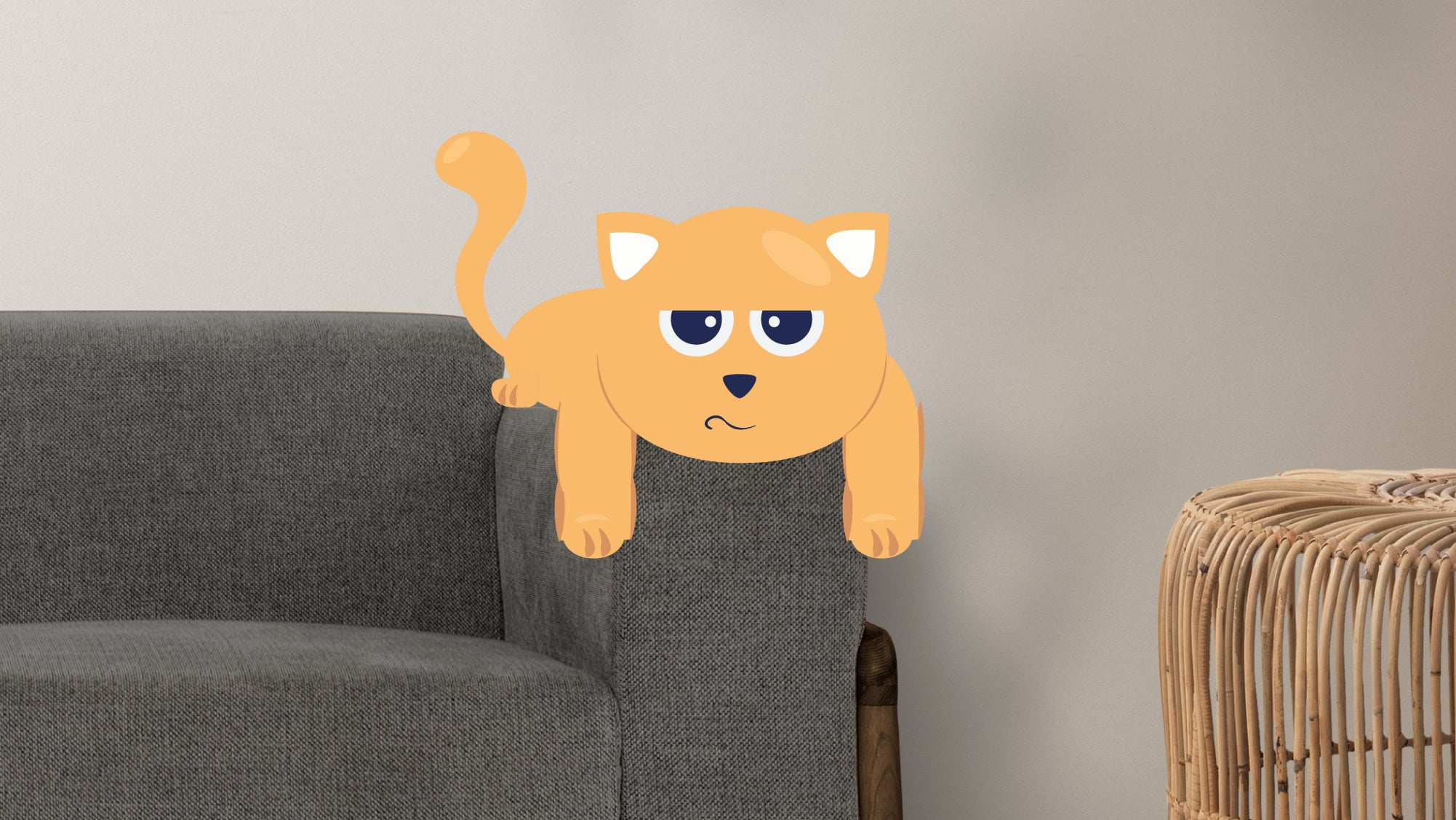Just like us, cats need to switch up their routines, the toys they play with, and the things they look at from time to time to avoid boredom and burnout. Follow the tips in this guide to figure out why your cat is bored and some solutions for preventing cat inactivity.
Do Cats Get Bored?
Yes, cats can quickly become bored, which can lead to destructive or disruptive behavior. Providing regular playtime, rotating toys, and creating new environmental stimulation can help keep cats mentally stimulated and prevent boredom.
We’ll discuss cat boredom, the top signs your cat is bored, and what you can do about it. Get empowered with new ideas to keep your cat happy and engaged.
Signs Your Cat is Bored
It’s important for cat parents to recognize the signs of boredom, which can range from excessive sleeping to destructive behavior. By understanding these signs, cat owners can provide appropriate outlets for their cat’s energy and help prevent boredom-related issues. Here are some common signs that your cat may be bored:
- Excessive sleeping or low energy: Although any pet parent knows how sleepy our kitties are, excessive lethargy can be due to a lack of stimulation.
- Excessive bursts of energy: This could be a sign of normal cat zoomies. Alternatively, it may be due to a lack of exercise.
- Destructive repetitive behavior: Has your cat been scratching your couch and gnawing on your chair legs every time you leave the house? They may be bored. Providing appropriate scratching posts and other outlets for her energy can help redirect this cat’s behavior.
- Inappropriate elimination: Cats may begin peeing or pooping outside the litter box when they’re bored.
- Attention-seeking behavior: Cats may become more vocal or demanding of attention when they get bored. They may follow you around the house, meow excessively, or even resort to nipping or biting.
- Aggression or irritability: A bored cat likely has pent-up energy that will cause them to become aggressive and lash out at other pets or family members. Learning to read your cat’s body language can help you to gauge better how they are feeling.
- Lack of interest in toys or play: Cats may get tired of playing with the same toys over and over again and may need new forms of stimulation.
Causes of Cat Boredom
Cats are beloved companions that bring joy and entertainment to their owners. However, as independent creatures, they require attention and stimulation to prevent boredom. Here are some common causes of cat boredom to keep in mind:
Lack of environmental stimulation
Cats need different things to play with, watch, and smell to stay engaged and entertained. When they lack these different types of stimulation, they can grow bored. Enrich your cat’s environment with new toys, scratching posts, hiding places, and access to outdoor areas.
Lack of physical exercise
Cats were born to move and hunt. Cats have incredible physical abilities that allow them to jump 5-7 times their height and walk on their toes for speed and stealth. They are also very flexible and can perform quick directional changes with ease. However, these amazing physical attributes mean cats require exercise to maintain their physical health and prevent boredom in cats.
To make sure your cat gets enough exercise, provide them with plenty of toys and opportunities to play, such as climbing structures, scratching posts, and interactive toys. Play regularly with your cat, and try to incorporate activities that encourage running and jumping.
Lack of mental stimulation
Cats are intelligent animals that need mental stimulation to stay engaged. Consider providing your cat with puzzle feeders or hiding treats around the house to encourage them to use their problem-solving skills.
Lack of socialization
Although they may hide when your friends come over, cats love socialization with the humans and other animals they love.
Socializing your cat can help keep them mentally and emotionally stimulated. This can be done through playtime with other cats or interactive playtime with you. This will help prevent boredom.
Related reading: How to Introduce a New Kitten to a Cat: 4 Easy Tips
Separation from owners or other pets
Cats are often attached to their owners and other pets in the household. Separation from loved ones for long periods of time can lead to boredom and loneliness.
Consider enlisting the help of a friend or pet sitter to visit your cat while you’re away, or even consider adopting a second cat to keep your furry friend company. With a little extra effort and attention, you can help your cat stay mentally and emotionally stimulated, even when you’re not at home.
Medical conditions or pain
Pain and/or medical issues are another cause of cat boredom, especially if movement is restricted. It’s important to consult with a veterinarian if you suspect your cat may be experiencing pain or discomfort.
How to Fix Cat Boredom
Cats are curious and intelligent animals, but they can quickly become bored if not given enough mental and physical stimulation. To prevent or fix cat boredom, consider the following:
- Enrich their environment with scratching posts, cat trees, and other items for climbing, hiding, and exploring.
- Make sure your cat gets enough physical exercise. Use feather wands and laser pointers to encourage them to run and hunt.
- Cats are social animals that need interaction with other cats and humans to stay happy and healthy. Playtime with owners and other cats can provide important socialization and mental stimulation.
- Introducing new cat toys, changing up the feeding schedule, or even just rearranging furniture can provide cats with new and stimulating experiences.
BetterVet Can Help
At BetterVet, we believe in providing comprehensive and compassionate veterinary care for cats of all ages. Whether you’re concerned about your cat’s boredom or any other health issues, our team of experienced, dedicated veterinarians is here to help. Contact us today for a behavioral consultation or a kitten check-up to keep your feline friend healthy and happy.
Frequently Asked Questions
Do cats get bored when alone?
Yes, indoor cats may experience boredom and loneliness when left alone without enough environmental enrichment or stimulation. This is especially true for cats that spend a lot of time alone, as they can become restless and anxious. Providing toys, scratching posts, and other forms of stimulation can help keep cats entertained and prevent boredom-related issues.
My cat is bored but won’t play. What should I do?
Your cat may have an underlying health issue if it is showing signs of boredom but won’t play. It’s crucial to set up an appointment with your veterinarian to rule out any medical problems and discuss potential solutions. Your vet can also offer advice on how to encourage your cat to play and provide appropriate environmental enrichment.
My cat gets bored of toys quickly. What should I do?
Cats are intelligent creatures that can quickly lose interest in their toys. If your cat gets bored with their toys quickly, they may need more interaction and attention from you. Try playing with your cat using different types of toys or engage in interactive playtime with them. This will help to provide your cat with the mental and physical stimulation they need to stay happy and entertained.





